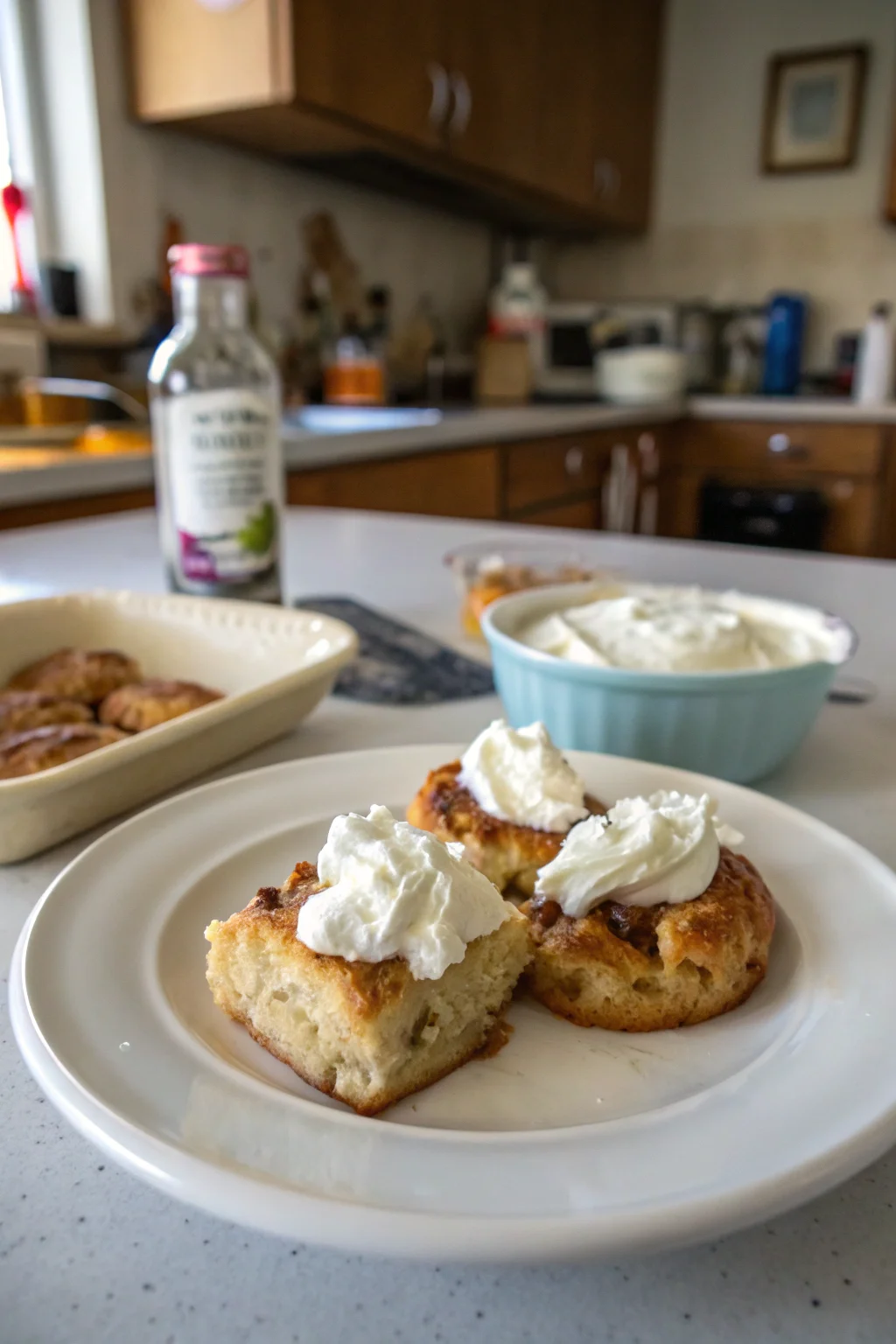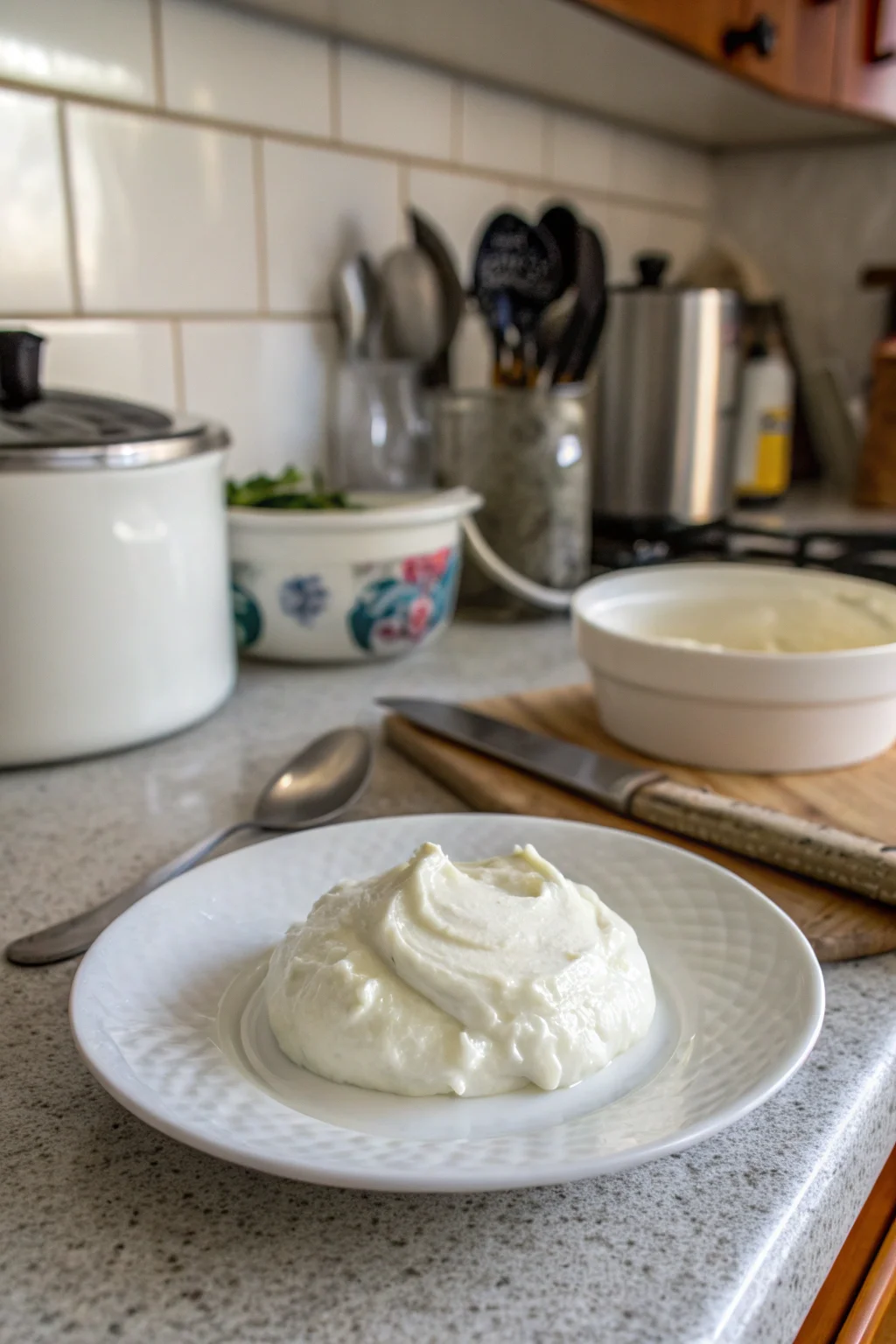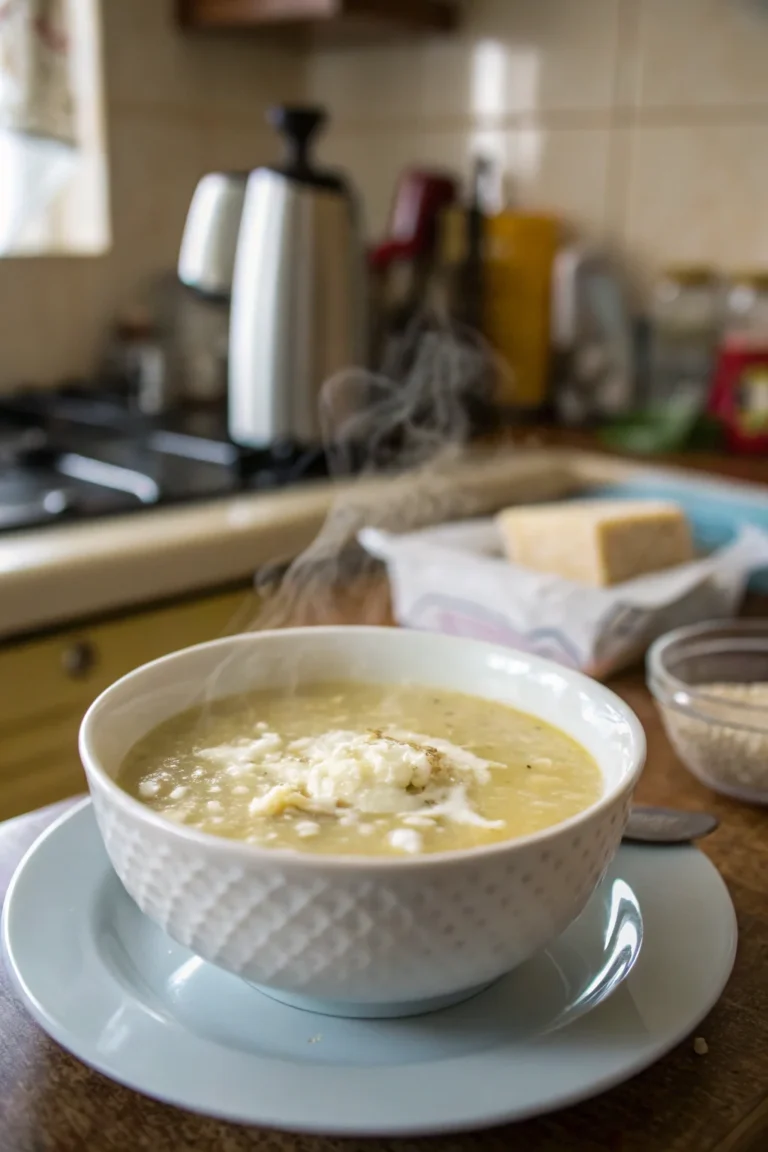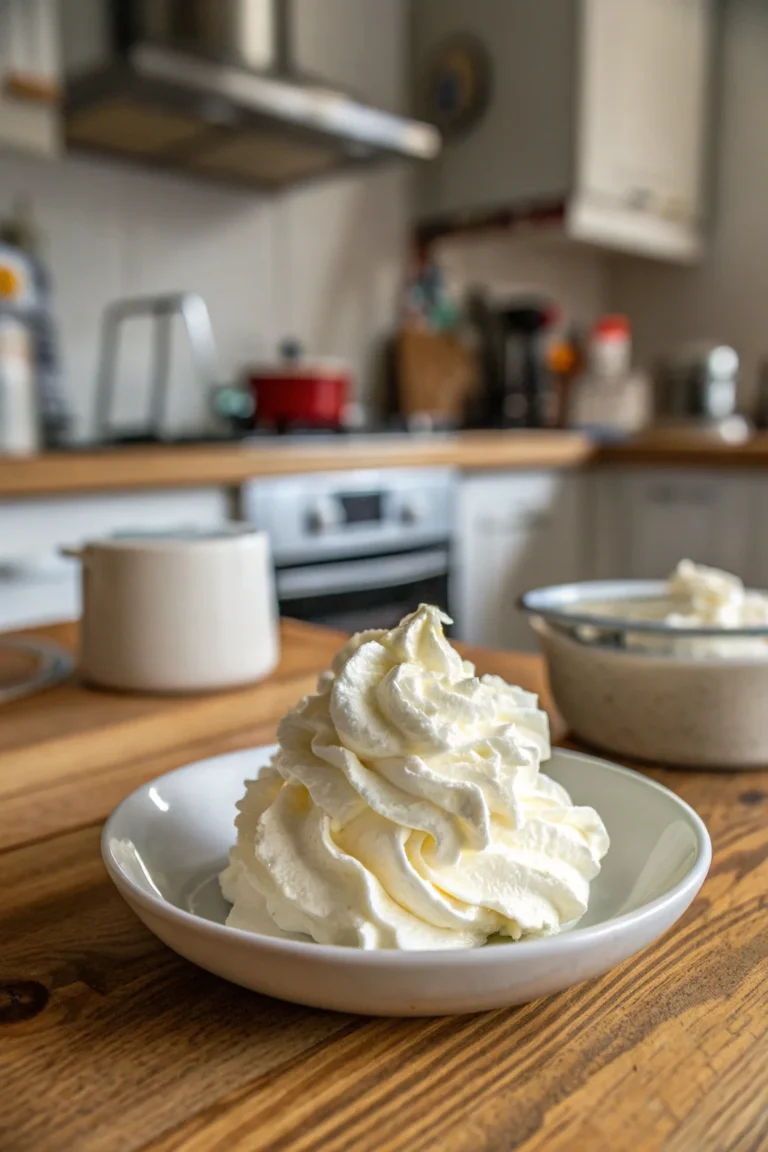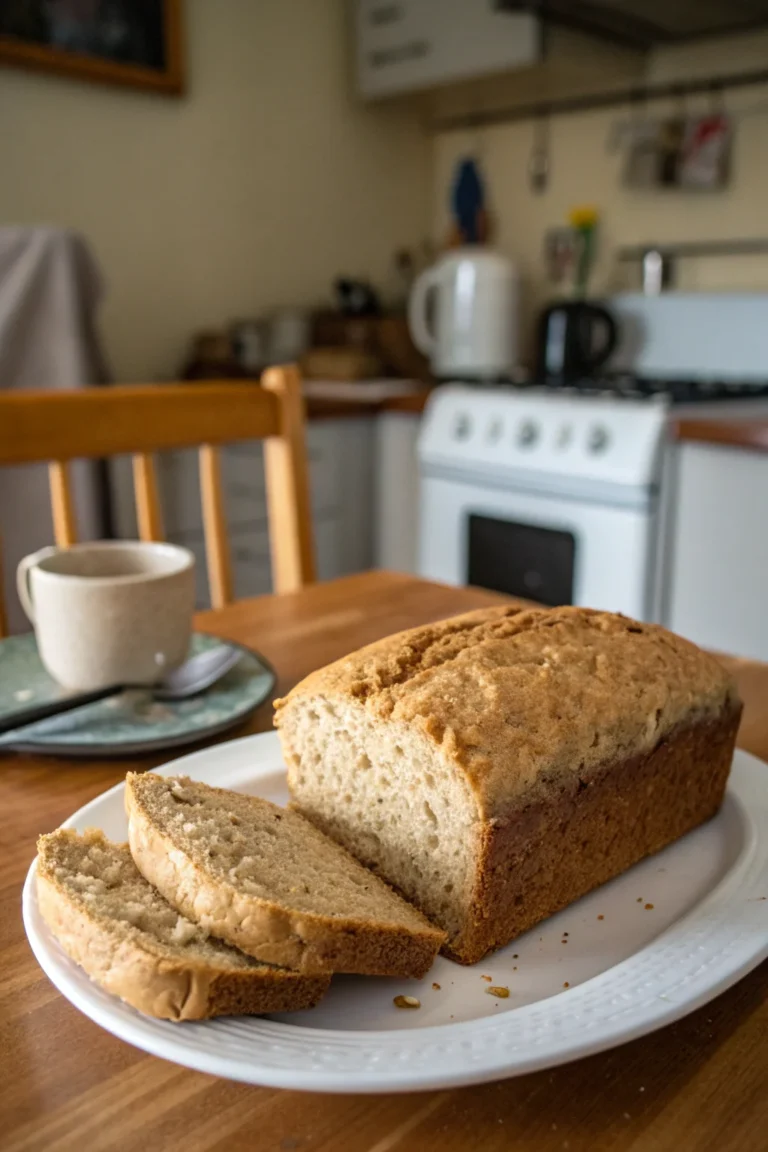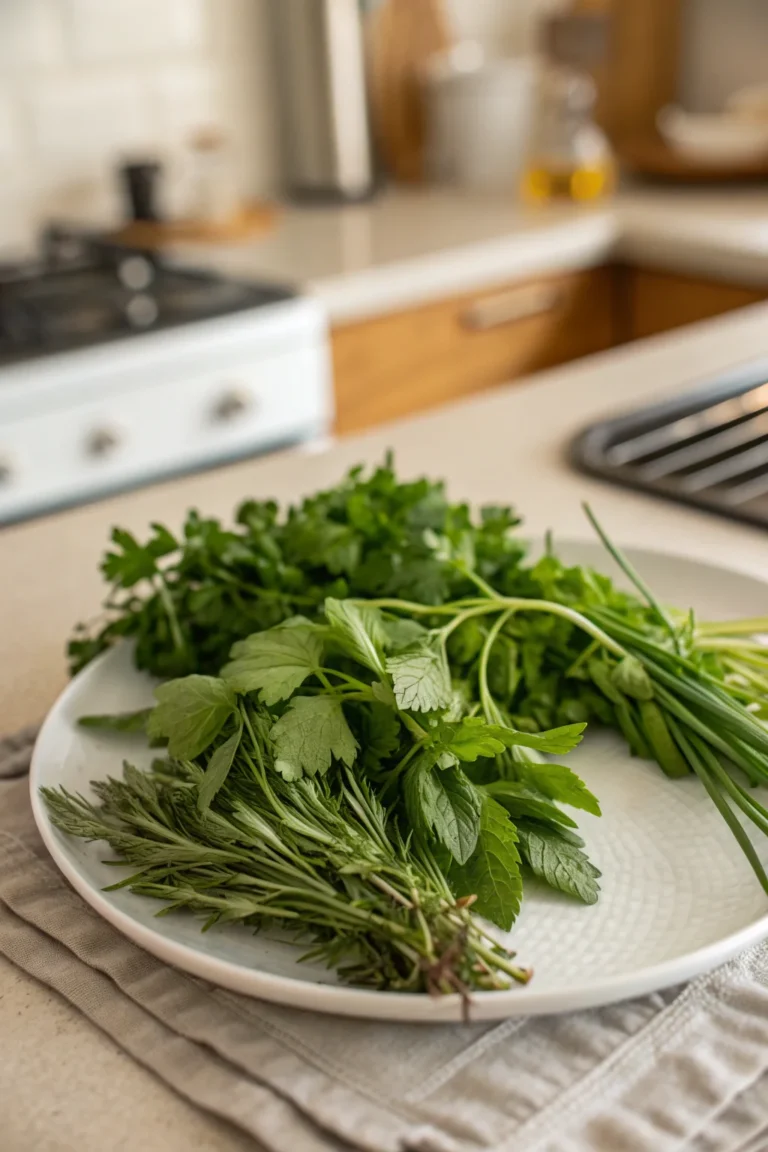Can You Use Greek Yogurt Instead of Sour Cream in Baking?
Baking can be a fun and creative process, and sometimes it calls for a bit of substitution. If you’ve ever wondered whether you can use Greek yogurt instead of sour cream in baking, you’re not alone! Many home bakers and chefs have explored this swap for various reasons, from health benefits to flavor preferences. In this FAQ-style article, we’ll dive into common questions and concerns about using Greek yogurt as a substitute for sour cream in baking.
Table of Contents
What Are the Benefits of Using Greek Yogurt Instead of Sour Cream?
Greek yogurt is a popular substitute for sour cream due to its similar texture and tangy flavor. Here are some benefits:
Lower in Fat: Greek yogurt generally has less fat than sour cream, making it a healthier option for those watching their fat intake. This can be particularly beneficial in recipes where you want to cut down on calories without sacrificing creaminess or flavor. For instance, using Greek yogurt in a creamy dressing or dip can significantly reduce the fat content while still providing a rich, satisfying taste.
Higher in Protein: It offers more protein, which can be beneficial if you’re looking to increase your dietary protein. This makes Greek yogurt an excellent choice for enhancing the nutritional profile of your baked goods. For example, adding Greek yogurt to muffins not only boosts the protein content but also helps keep you fuller for longer, which is great for those looking to manage their weight or increase their protein intake.
Probiotics: Greek yogurt contains probiotics, which are good for gut health. These live bacteria help maintain a healthy gut microbiome, which can improve digestion and boost your immune system. When incorporating Greek yogurt into your baking, you’re not just creating delicious treats but also supporting your overall well-being.
Versatility: It can be used in both sweet and savory dishes. This flexibility makes Greek yogurt a staple in many kitchens, allowing bakers to experiment with various recipes, from fluffy pancakes to savory bread. Its ability to adapt to different flavor profiles makes it an indispensable ingredient.
For more tips on healthy baking, check out our Healthy Baking Substitutes guide.
How Does Greek Yogurt Affect the Texture of Baked Goods?
Using Greek yogurt can slightly alter the texture of your baked goods. Here’s what you might notice:
Moisture: Greek yogurt adds moisture, which can make cakes and muffins more tender. This added moisture is particularly beneficial for recipes that tend to dry out quickly, like scones or banana bread. The yogurt helps retain moisture, leading to a softer crumb that stays fresh longer.
Density: It can make baked goods a bit denser compared to sour cream. While this might seem like a downside, the density can actually enhance certain baked goods, such as brownies or dense cakes where a rich, fudgy texture is desired. If a lighter texture is preferred, consider using a bit less flour or adding an extra egg to balance out the density.
Rise: Due to its acidity, Greek yogurt can help activate baking soda, improving the rise of your baked goods. This is particularly helpful in recipes like pancakes or quick breads, where a good rise is essential for the desired texture. The acidity of the yogurt reacts with baking soda to produce carbon dioxide, creating air pockets that help your baked goods rise.
Experiment with different amounts to find the perfect balance for your recipe.
Is Greek Yogurt a 1:1 Substitute for Sour Cream?
Generally, you can use Greek yogurt as a 1:1 substitute for sour cream in most baking recipes. However, keep these tips in mind:
Flavor: Greek yogurt has a slightly tangier taste, which might be more pronounced in some recipes. In savory dishes, this tanginess can enhance flavors, but in sweet recipes, you might want to adjust other ingredients to balance the taste. For instance, adding a bit more sugar or vanilla extract can help offset the tanginess.
Consistency: If the yogurt is too thick, you might need to thin it with a bit of milk or water. This is especially important in recipes where the consistency of the batter is crucial for the final texture, such as in pancakes or crepes. To achieve the right consistency, start by adding a tablespoon of liquid at a time until the desired thickness is reached.
For more baking tips and tricks, visit our Baking Essentials page.
Can You Use Greek Yogurt in Cheesecake Instead of Sour Cream?
Absolutely! Greek yogurt can be a great substitute in cheesecake recipes. Here’s how:
Texture: Greek yogurt provides a creamy texture similar to sour cream. This makes it an excellent choice for creating a rich, smooth cheesecake. The yogurt adds a slight tang that complements the cream cheese, resulting in a deliciously balanced flavor.
Flavor: Its tangy flavor complements the cream cheese well. The tanginess of Greek yogurt can enhance the overall flavor profile of the cheesecake, adding a subtle depth that pairs beautifully with fruit toppings or chocolate.
Tips: Use full-fat Greek yogurt for the best results, as it mimics the richness of sour cream. This is crucial in a dessert like cheesecake, where the richness of the ingredients contributes to the decadent taste and mouthfeel. Additionally, be sure to drain any excess liquid from the yogurt to prevent the cheesecake from becoming too watery.
For more on making delicious cheesecakes, see Cheesecake Baking Tips.
Does Greek Yogurt Change the Flavor of the Recipe?
While Greek yogurt is similar in tanginess to sour cream, it can slightly change the flavor of your recipe:
Tanginess: The tangy flavor might be more noticeable, especially in sweet recipes. This can be a delightful addition to certain desserts, like lemon cakes or berry muffins, where the tanginess complements the existing flavors. However, if you find the tang too strong, consider adding a little extra sugar or honey to balance it out.
Sweetness: You might want to adjust the sweetness if the tang is too strong. Taste your batter before baking and adjust as needed. This step is crucial in recipes where the balance of flavors is key to the final product, such as in vanilla cupcakes or sugar cookies.
Taste your batter before baking and adjust as needed.
Are There Any Recipes Where Greek Yogurt Should Not Be Used as a Substitute?
In some recipes, the flavor or texture might be too significantly altered by using Greek yogurt:
Delicate Pastries: Recipes that require a specific texture, like certain pastries, might not work well with Greek yogurt. For example, in recipes like puff pastry or croissants, where the flakiness is essential, the added moisture from Greek yogurt can weigh down the dough, preventing the desired rise and texture.
Sour Cream-Based Sauces: Dishes heavily relying on sour cream flavor might not taste the same. For instance, in dishes like Beef Stroganoff or certain creamy dips, the distinct flavor profile of sour cream is integral to the dish, and Greek yogurt may alter this significantly.
Always test on a small batch first if you’re unsure.
Can You Use Flavored Greek Yogurt Instead of Sour Cream?
Flavored Greek yogurt can be used, but it’s not always ideal:
Added Sugars: Flavored yogurts often contain added sugars, which can affect the recipe’s sweetness and overall flavor profile. This can be problematic in savory dishes, where the added sweetness can overpower other flavors.
Flavor Profile: The added flavors might not complement your dish. For example, a strawberry-flavored yogurt might not pair well with a savory casserole where plain yogurt would be a better choice.
For best results, stick to plain Greek yogurt.
Is Greek Yogurt Suitable for All Types of Baking?
Greek yogurt is versatile but may not suit every baking recipe:
Good for: Cakes, muffins, quick breads, and pancakes. These recipes benefit from the added moisture and slight tang of Greek yogurt, resulting in tender, flavorful baked goods.
Not ideal for: Recipes requiring a specific sour cream texture or less tangy flavor. For example, in recipes like chiffon cakes or certain delicate cookies, the specific texture of sour cream is essential for achieving the desired result.
Experiment with small adjustments to see what works best.
Does Using Greek Yogurt Affect Baking Time?
Baking times might slightly vary when using Greek yogurt:
Moisture Content: Higher moisture can increase baking time. This is particularly true for recipes like quick breads or dense cakes, where the added moisture can slow down the baking process.
Check Early: Start checking your baked goods a few minutes before the recommended time. This ensures you don’t overbake your treats, as ovens can vary significantly. Use a toothpick to test for doneness; it should come out clean or with a few moist crumbs when your baked goods are ready.
Adjust as needed based on your specific oven and recipe.
How Can You Adjust a Recipe When Using Greek Yogurt?
When substituting Greek yogurt, consider these adjustments:
Flavor: Increase sweeteners if the tang is too pronounced. This can be done by adding a bit more sugar, honey, or even a splash of vanilla extract to balance out the flavors.
Consistency: Thin with water or milk if the batter is too thick. The ideal consistency can vary depending on the recipe, so add liquid gradually until you achieve the desired texture. This is particularly important in recipes like pancake batter, where the right consistency is crucial for proper cooking and texture.
Baking Time: Monitor closely as mentioned earlier. Keep an eye on your baked goods, especially if you’re trying a new recipe or baking in an unfamiliar oven. Adjust the timing based on the appearance and texture of the final product.
Adapt recipes with these tweaks for best outcomes.
Can Greek Yogurt Be Used in Frostings Instead of Sour Cream?
Yes, Greek yogurt can replace sour cream in frostings:
Texture: It provides a smooth, creamy texture. This makes Greek yogurt a great choice for creating rich, luscious frostings that spread easily over cakes and cupcakes.
Flavor: Adds a slight tang, which can be balanced with sugars and flavors. This tang can complement flavors like chocolate or vanilla, adding a unique depth to your frosting. If desired, enhance the flavor with additional vanilla extract or a hint of citrus zest.
Opt for full-fat yogurt for richer results.
Are There Any Nutritional Differences to Consider?
Greek yogurt offers various nutritional benefits over sour cream:
Calories: Generally lower in calories, making it a more diet-friendly option for those looking to reduce calorie intake without sacrificing taste.
Fat Content: Less fat, especially saturated fat. This can be beneficial for heart health and weight management, particularly in recipes like dips or salad dressings where sour cream is traditionally used.
Protein: Higher protein content supports muscle health. This is especially beneficial in breakfast recipes like pancakes or muffins, providing a more satisfying and nutritious meal.
For more on nutrition, see Nutrition in Baking.
Wrap-Up
Greek yogurt is a versatile and healthy substitute for sour cream in many baking recipes. It can slightly alter the flavor and texture but often in a delightful way. Whether you’re aiming for a healthier option or simply out of sour cream, Greek yogurt can be a great alternative. Experiment with different recipes and enjoy your delicious creations! For more baking inspiration, visit Baking with Greek Yogurt from Food Network or AllRecipes.

